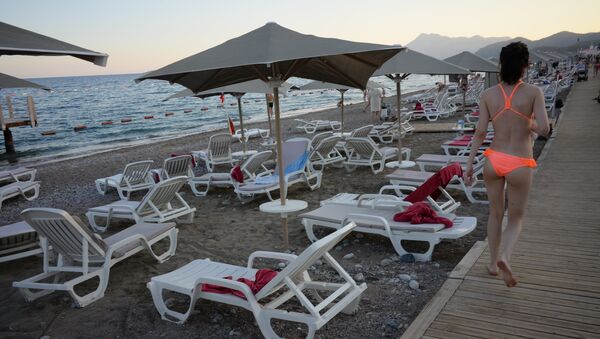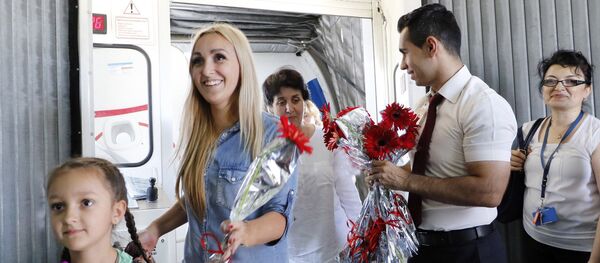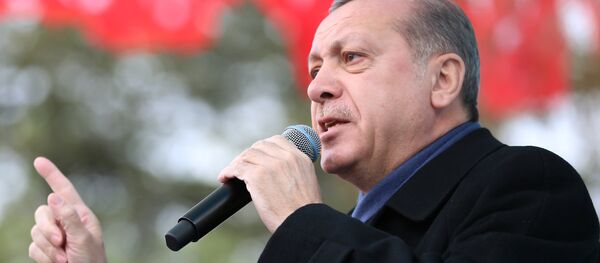On Monday, a source in the Russian civil aviation industry told Sputnik that Russia's Federal Air Transport Agency had informed Russian airlines about the possible suspension of regular charter flights to Turkey, ostensibly due to the 'complicated internal political situation' in the country.
On Tuesday, a spokesman for the Turkish Directorate General of Civil Aviation added that for the moment, Russia has not officially informed the Turkish side about the possible suspension of flights.
Russian tourists have been the source of billions of dollars in earnings for Turkey's tourism industry in recent years, and the sector is understandably concerned that a new round of tensions between the two countries would hit them hard, and at what is normally the peak of the tourist season.
Speaking to Sputnik Turkey, Ali Kizildag, chairman of Turkey's Association of Professional Hoteliers, said that the Turkish side obviously could not see this warning from the Russian side as any kind of positive signal.
"I think it is connected to several political developments," Kizildag noted. "As a representative of the tourism sector, I believe that Russian-Turkish relations should be developed in a more positive way, and that our economic and cultural ties should not be sacrificed in favor of short-term political rhetoric," he added.
Russian observers explained that the surprise move may have been an attempt to pressure Russia to lift its restrictions on Turkish tomato exports, but emphasized that this 'clumsy diplomacy' put Moscow in a very awkward position, since Russia and Turkey had seemingly restored ties following President Recep Tayyip's Erdogan's apology over the downed Russian plane.
Secondly, Turkey's leaders, including President Recep Tayyip Erdogan and Prime Minister Binali Yildirim, have offered very firm support for the US's cruise missile strikes against a Syrian airbase last week. Russia, for its part, condemned the attack as an act of aggression, and a flagrant violation of international law.
President Erdogan, on the other hand, welcomed the strikes, and said that he hoped that they were "only the beginning" of a broader US operation. On the eve of the US attack, the Turkish president even promised to provide support for any US military operation.
Focusing on the economic impact of the new problems in bilateral relations, Ali Kizildag stressed that if charter flights were stopped, Turkey's tourism sector would of course try to make up for losses by searching for other markets.
"Last year, we observed serious negative trends, both in terms of the number of tourists, and the income earned by the industry. In this connection, we were forced to take a number of measures, including reorienting to a number of new [countries]. If the situation repeats itself, we will again resort to this strategy. The government will naturally offer some support, but we would not like to see it come to this. In this case, damage would be incurred by both sides."
In 2016, Turkey lost an estimated $11-12 billion in tourism revenues, with the sector as a whole declining 40-45% compared with 2015. Russia is believed to have contributed to about $7 billion of these losses.
Kizildag complained that another problem was that the new restrictions could hit the tourism sector at a crucial moment in time. "Russian tourists, as a rule, come to Turkey most actively in the period between April and October," he stressed. "Therefore, every effort should be made to prevent such unpleasant situations from recurring."
"The suspension of charter flights could be a very serious blow to the Turkish tourism sector and to the economy," the lawmaker said. "A series of European countries have already excluded Turkey from the list of safe countries to visit, and recommended that their citizens refrain from coming here."
Accordingly, the lawmaker emphasized that he and his fellow lawmakers hope "that the warning will not be implemented in practice. We support the development of the tourism sector in Turkey's economy, whatever the existing difficulties. And we are waiting for corresponding steps in this direction from the Foreign Ministry."





